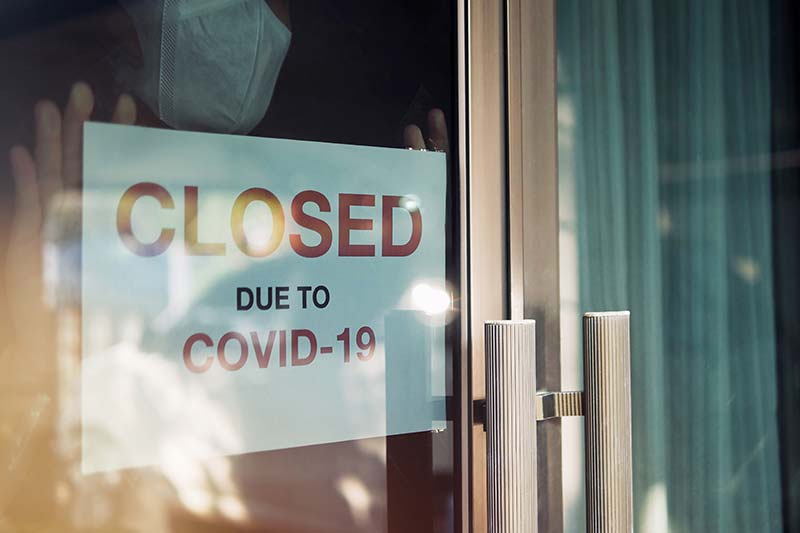On March 19, 2020, Governor Gavin Newsom issued a stay-at-home order to help prevent the spread of COVID-19. While some essential businesses have remained operational during the shut-down, several have had to close their doors. Many companies were not financially prepared to suddenly lose months of income. The reality for these struggling owners is that they have fallen behind on their commercial rents and may no longer be able to afford their leases. Legislation was recently proposed to assist business owners in this situation, raising the question: Is a new California bill going to let commercial tenants break leases?
Senate Bill 939 (SB 939)
On February 6, 2020, California Senators Scott Wiener and Lena Gonzalez introduced Senate Bill 939 (SB 939). The bill proposes to temporarily stop evictions of certain California commercial tenants who have been impacted by COVID-19. There would also be an extensive moratorium on evictions to give the affected parties more time to pay their past-due rental obligations. SB 939 also seeks to establish a procedure for the tenants to modify their rental obligations or be able to get out of their leases with limited financial repercussions.
Criticism of SB 939
While SB 939 may be noble in its intent, striking a balance between providing relief for commercial tenants and being fair to landlords is proving difficult. To that end, the bill has been met with strong opposition from California commercial real estate groups. Critics of the bill have noted that while the proposed legislation protects struggling business tenants during this unprecedented event, it doesn’t consider the consequences for commercial property owners. Specifically, SB 939 fails to address the fact that its measures safeguard tenants’ interest at the unfair expense of property owners. Further, opponents argue that, as proposed, SB 939 offers one-sided protection in a circumstance that must consider the needs and obligations of both landlord and tenant. While everyone can acknowledge that the pandemic has created difficulties for several businesses, the hardship does not belong exclusively to commercial tenants. Without rental income, building owners could be placed in a position of not being able to pay their mortgages, taxes, or other obligations. Just as business tenants need to pay rent, property owners rely on rental income to pay their debts. Without rental income, these owners may end up facing dire financial consequences and even foreclosures.
The Status of SB 939
SB 939 passed in the Senate Judiciary Committee, as amended on May 29, 2020, and was sent to the Senate Appropriations Committee, where it was heard on June 9, 2020. On June 11, 2020, the Senate Appropriations Committee voted to send SB 939 to the Senate Suspense file for further evaluation. This action means that the bill is going to go through further analysis and scrutiny.
According to a recent report, Senator Weiner is currently working to amend the bill to address stakeholder concerns. As initially proposed, SB 939 would have allowed small businesses to terminate their leases without penalty after 30 days of negotiation. However, this term will no longer be part of the bill. Senator Weiner is developing alternative language to encourage landlords to engage in lease negotiations. The senator is also working on lessening the period for the eviction moratorium and on making other changes to balance the interests of both tenants and landlords. The next hearing is scheduled to take place in the Senate on June 18, 2020.
Contact the Law Office of Raffy Boulgourjian
Attorney Raffy Boulgourjian is a California real estate attorney with over twenty years of experience representing clients in residential and commercial real estate matters. He has the knowledge and expertise to protect your real estate interests. Contact Mr. Boulgourjian today to schedule a free legal consultation to discuss your California real estate legal needs.


